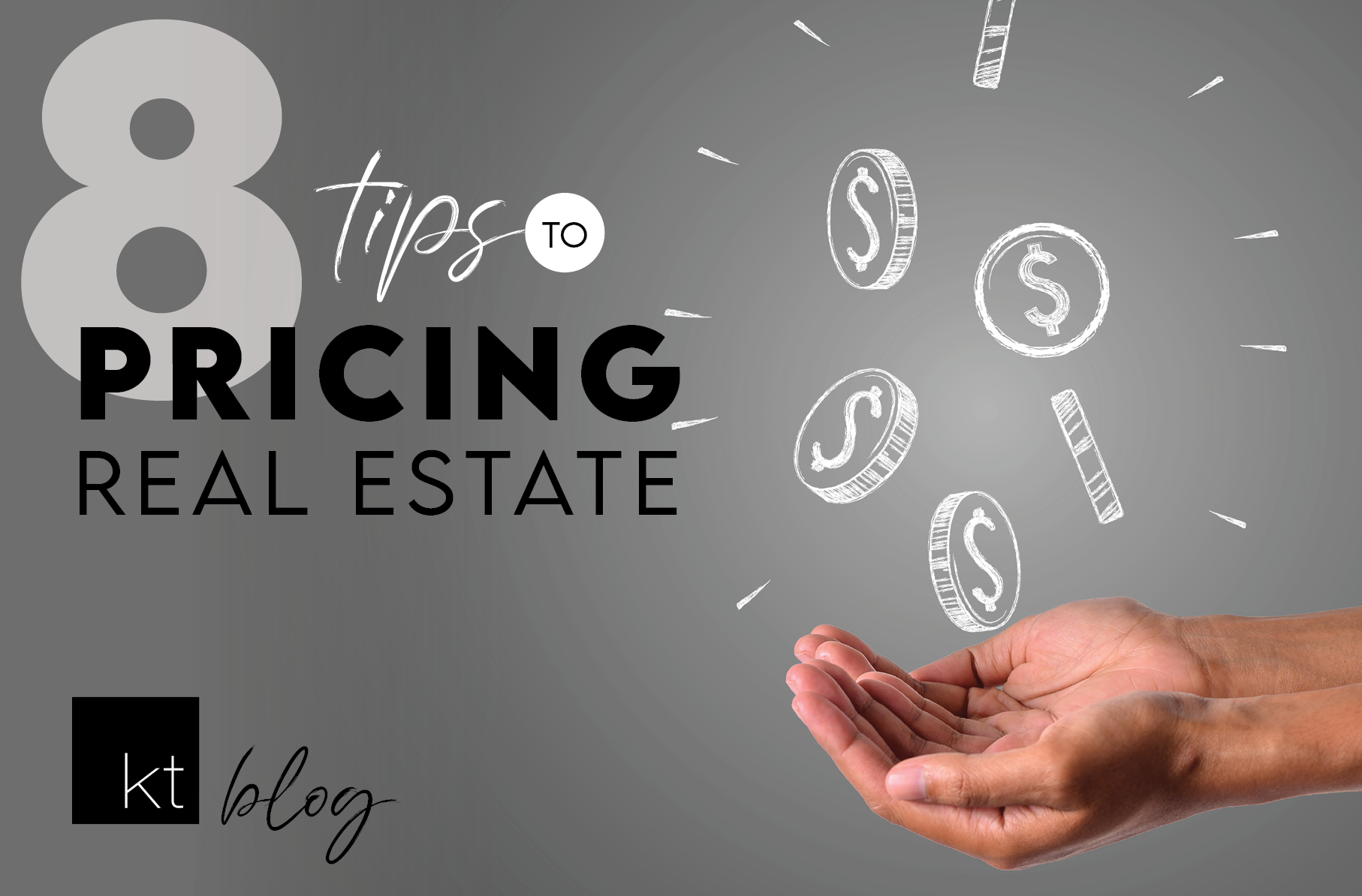Deciding how much to list your property for sale is an integral step in achieving a successful sale. The list price is a strategic component that can make or break a deal. Here are the top 8 considerations to help you decide:
Be Objective
This is hard to do; sentimental value and years of memories often get in the way. Prospective buyers will view compare your home to others in a very objective manner. If you can do this too, you will have a winning perspective.
Appraising Real Estate by the Comparison Method
While it’s often easy to find comparable homes in an area to help assess your home’s value, these variables are often overlooked. They can play a big factor in why a home sold for a particular amount of money:
- Seller Motivation | A seller in duress, may sell for less to accommodate a hard deadline on closing
- Marital breakdown | Two owners going through a deteriorating relationship may have unknown influences on their final decision to sell
- Real Estate Marketing | Homes that show exceptionally well and that are marketed thoroughly will always sell for more money
- Salesmanship | This one really should be pushed to the top of the list; a Realtor’s ability to negotiate can easily sway a price tens-of-thousands of dollars, and sometimes more
- Market conditions | The market fluctuates often. There may be a blip in time when a surge of inventory hits the market, resulting in less competition and lower prices, or all of the competing homes could sell overnight, making the one remaining more desirable.
The Previous Selling Price is Irrelevant
We occasionally have clients ask us what somebody paid for a house, and in some cases, they ask this because they want to incorporate that number into their perception of how much the house is worth. How much somebody paid is of zero importance when determining value. For example, you could buy a share of Air Canada today for $25 and have it jump to $50 in a short time; the price you paid is irrelevant, the going rate is all that matters.
Adjusting the Price for Upgrades
If your home is twelve years old and you recently installed new carpeting, you can’t simply add the cost of the new flooring to your list price. You should consider the price, but for that price, the new owners may have chosen a different color carpet or paid a bit more to get hardwood; in fact, they may rip up your new carpet and put hardwood in so it’s still perceived as a deterrent. Also, to the contrary, sometimes the cost of the upgrade is lower than the added value! Compare that feature to homes with and without it to see if you can estimate how people are paying for those features.
You Can Price Too Low
There is a school of thought that states you cannot price a home too low. The thought goes that if you price your home low, there will be multiple offers, driving up the selling price. This is true in some market conditions, but not all. In fact, we’re currently experiencing a market where the strategy of pricing low often results in the seller re-listing at a later date and a higher price. This comes as a result of the offers not going high enough –this can be detrimental to your sale.
Never Test the Waters
A Realtor who lacks the ability to educate and negotiate may agree to list your home at a high price to earn your business, then subsequently reduce the price after a period of time and sell for less –they still get paid! Pricing your home correctly from the get-go is crucial; this is when your home will have the greatest number of eyes on it. Hit the market looking good and priced right for a successful sale.
Don’t Reduce too Early
It’s common for homeowners to get nervous after weeks with no offers; but, don’t get discouraged. If you’ve done your due diligence in selecting an accurate, justifiable, and strategic list price, trust in your gut and ride it out a bit.
Don’t Be in Denial
Contrary to the above, don’t wait TOO long to reduce your price. If you’re in a declining market, pricing a couple of weeks ahead can help get you sold quicker and for more money than making the price adjustment later. It’s a fine balance to determine if and when to make a price adjustment, but if you’ve followed these steps and have a real estate agent you trust, the decision is usually more obvious.





